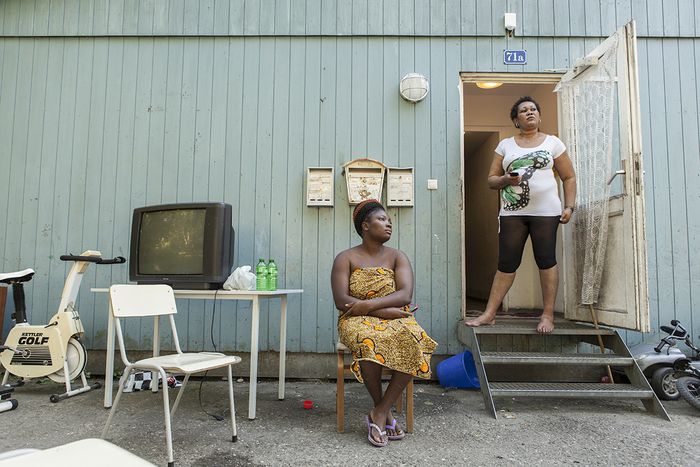
'Break Isolation': German asylum seekers fight back (9 images)
Published on
Translation by:
ClaireWhiteAsylum seekers come to Germany to escape wars, dictatorships and poverty. They have become prisoners of an administrative system which holds them in isolation and insecurity. Housed in campsites on the outskirts of towns, asylum seekers don’t have the right to move around freely and are rarely allowed to work. In order to survive, they must make do with very little state funding, enduring a ‘second-class citizen’ lifestyle, which many have to suffer for years. In 2012 the Iranian asylum seeker Mohamed Rahsepar hung himself in his bedroom at the Bavière refugee camp in 2012, sparking protests and hunger strikes. Some went to the extreme of keeping their lips tightly sealed, using their silence as a sign of protest. Today, the battle continues without much success to date in deducing a necessary control of incoming migrations, which major political parties refuse to respond to. French photographer Alexis Huguet spent the summer of 2012 in the German regions of Bavaria, North Rhine-Westphalia and Baden-Wuerttemberg; text by Clair Rivière
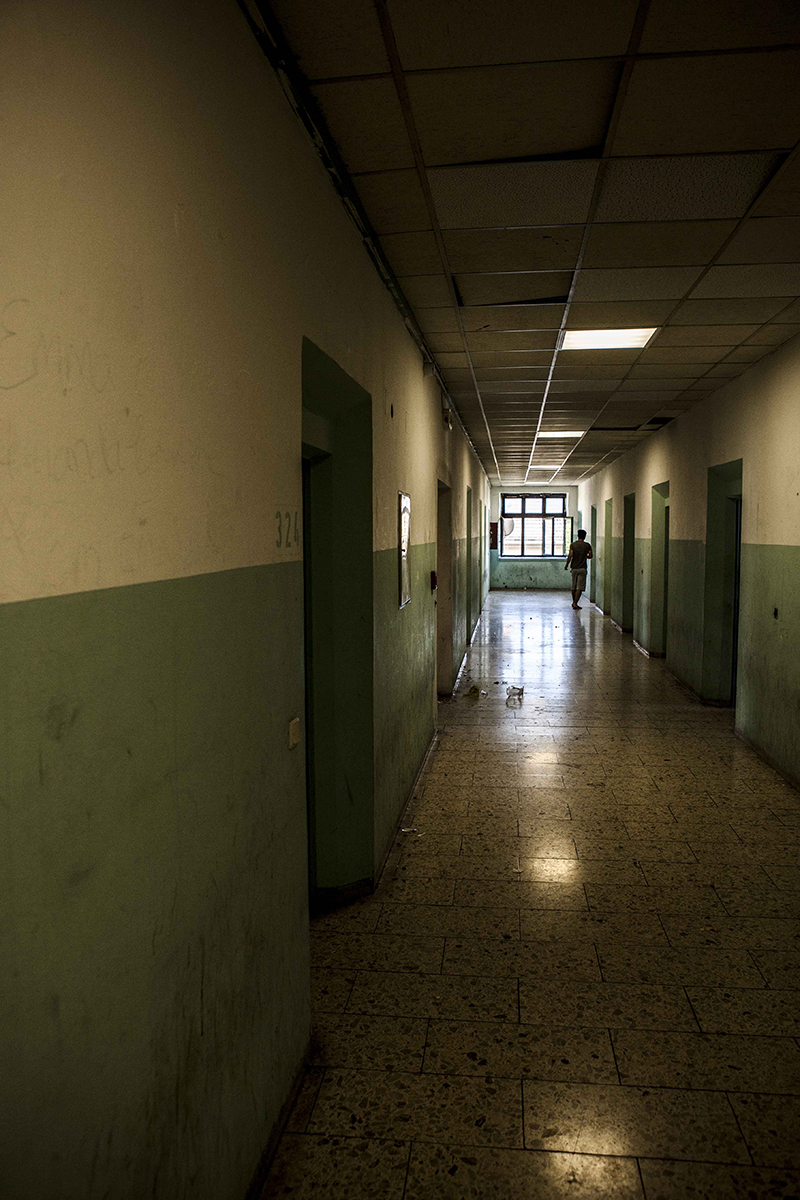
The Würzburg refugee camp in Bavaria, southern Germany is an old American military barracks, surrounded by barbed wire and video-surveillance cameras. Refugees live here, several per room, in close proximity with no privacy. The residents speak of recurring problems of 'alcohol, fights, noise and tension'. Medical advisors say that this way of life can provoke or bring out psychological stress in people who are often traumatised by the horrors that have forced them to leave their own countries (Image: © Alexis Huguet)
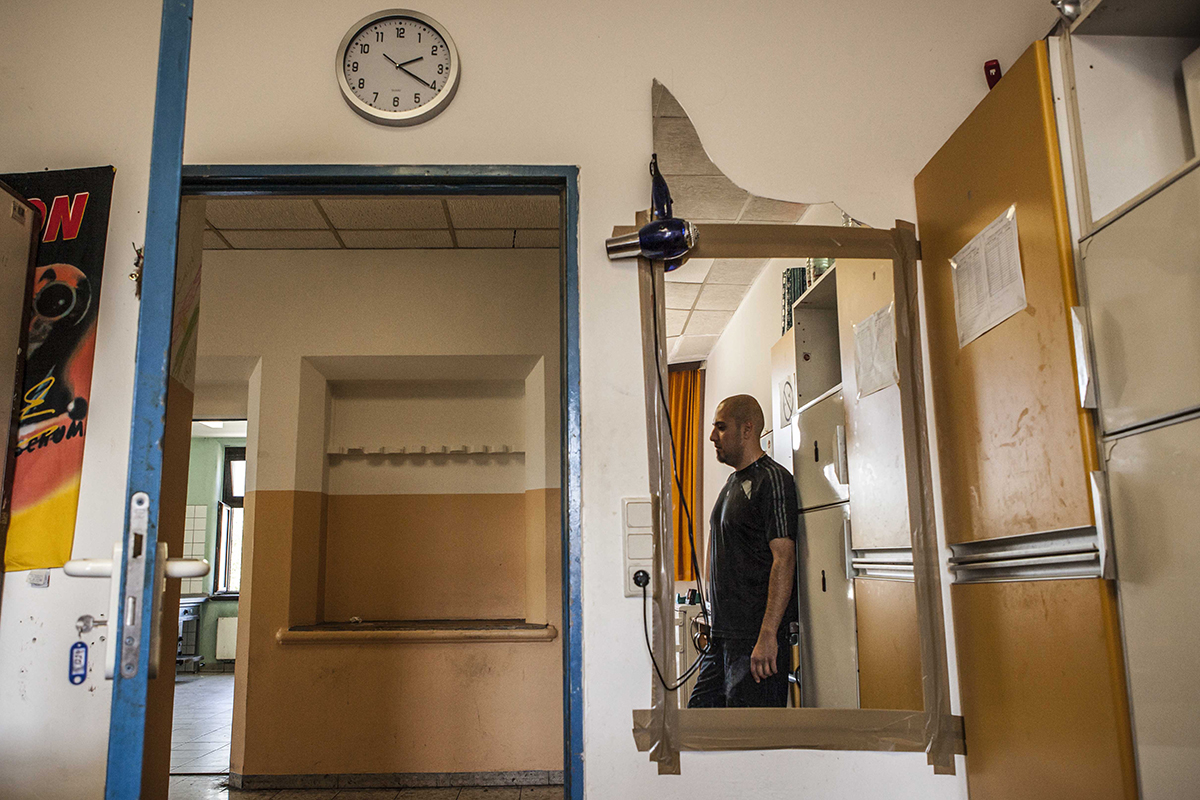
Ajin Assadi from Iran is legally compelled to live in the Würzburg camp. As an asylum seeker in the country, he is subjected to a 'Residenzpflicht', which is the German legal requirement of 'mandatory residence'. This forbids him from leaving the administrative district to which he is assigned, at the risk of being fined or imprisoned. The extent of this administrative obligation is not the same for all of the sixteen 'Länder' or federal states of Germany. For example Bavaria is very conservative, and is the boundary of the 'Regierungsbezirk', one of four government regions comprising the various federal states in Germany (Image: © Alexis Huguet)
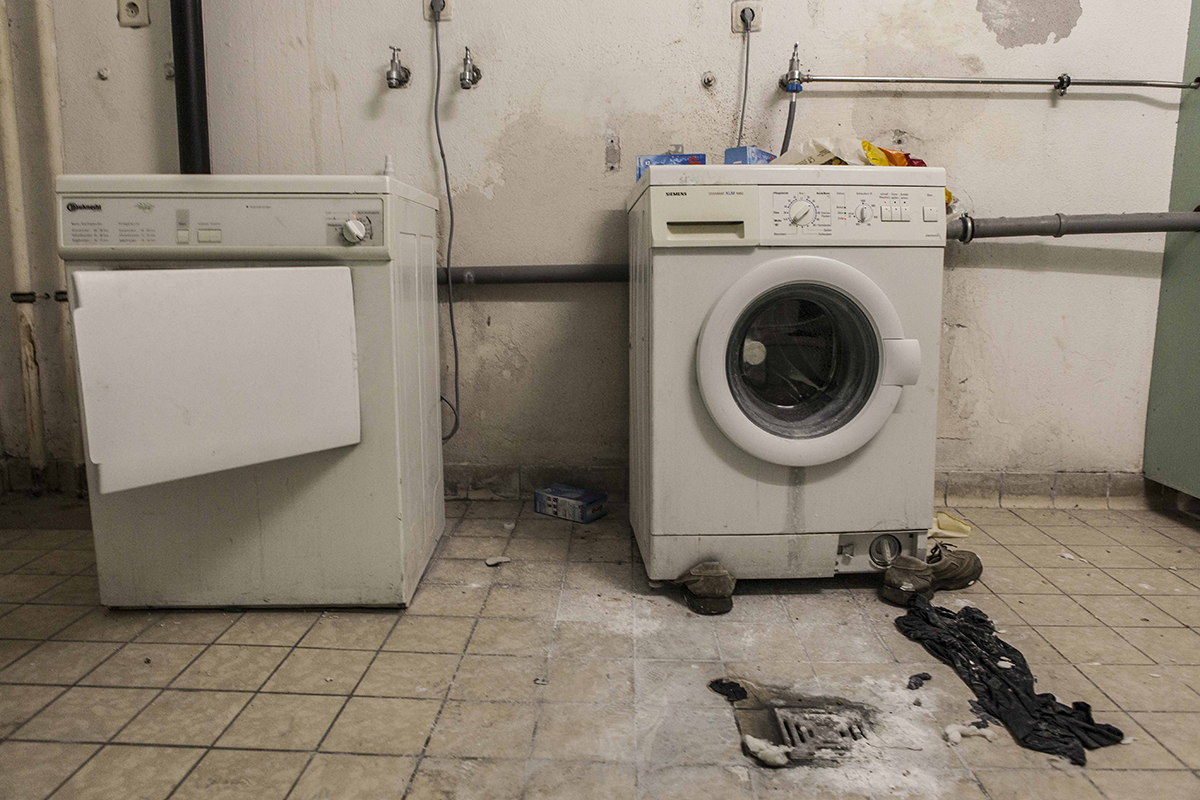
Contrary to proceedings in France, all migrants who have submitted asylum requests have access to food and housing. But this relatively material comfort pays for itself since there are restrictions on their freedoms. The camps which are welcoming refugees are also often in a pitiful state. It was here in the Würzburg camp where Mohamed Rahsepar put an end to his life on the night of 28 January 2012. His act of desperation outraged fellow Iranians, who have since organised several demonstrations and hunger strikes. Their movement then spread to other towns and regions of Germany last summer, up until the ‘Great Walk’ to Berlin which the refugees did this autumn, 'covering 600km in one month' (Image: © Alexis Huguet)
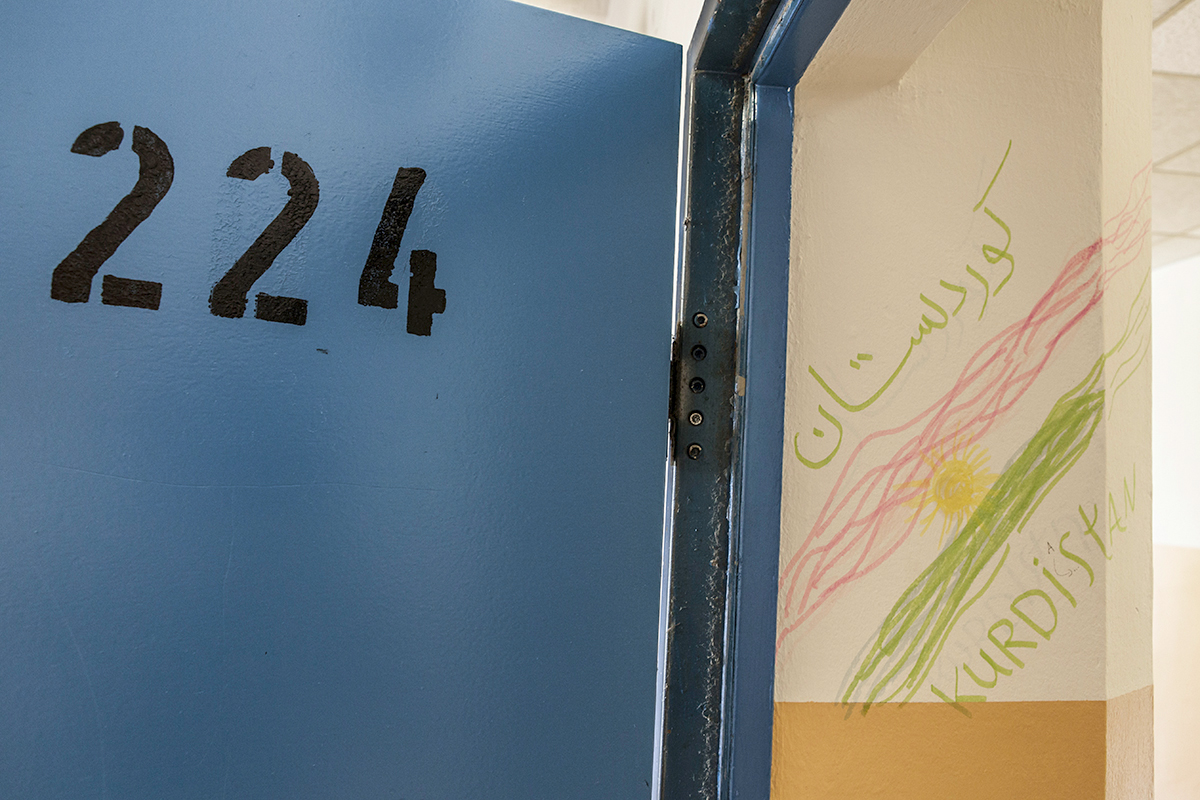
Many of Würzburg camp’s residents are Kurdish. In 2011, asylum seekers in Germany mainly came from Afghanistan, Iraq, Serbia, Iran and Syria. That same year, the federal office for migration and refugees (BAMF) received 43, 362 asylum requests. Only 9, 676 applications (22.3%) were accepted to stay permanently. Some others were deported, whilst the rest fled and became illegal immigrants (Image: © Alexis Huguet)

At the end of July 2012, hundreds of people protested against the deportation of undocumented foreigners at Düsseldorf airport. Asylum seekers were also fighting against the judicial system. On 18 July, they successfully won over the federal constitutional court (which has the highest jurisdiction in Germany). They granted a re-evaluation of the economic allowance asylum seekers are given: it has been increased from forty-something euros to 130 euros per month (Image: © Alexis Huguet)
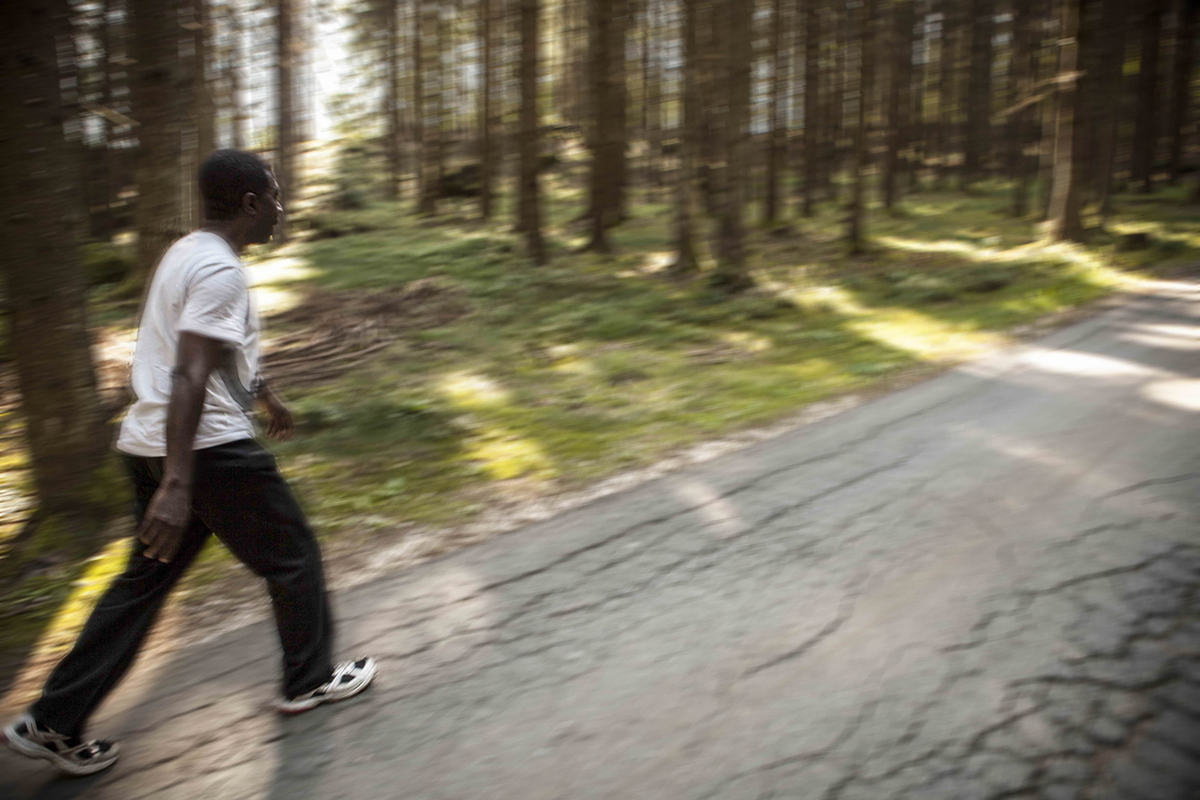
In Böbrach in the Bavarian mountains, very close to the Czech Republic, this refugee camp is an old holiday camp. It is isolated in the middle of the woods, several kilometres from the nearest village, and is not fenced in. It still doesn’t offer any possibilities other than eating, sleeping and gazing at the forest: having the blues is definitely guaranteed. 'Nothing to do, no one to see, this isn’t integration. It’s like being in a prison,' says Michel Obango, a Congolese refugee (Image: © Alexis Huguet)
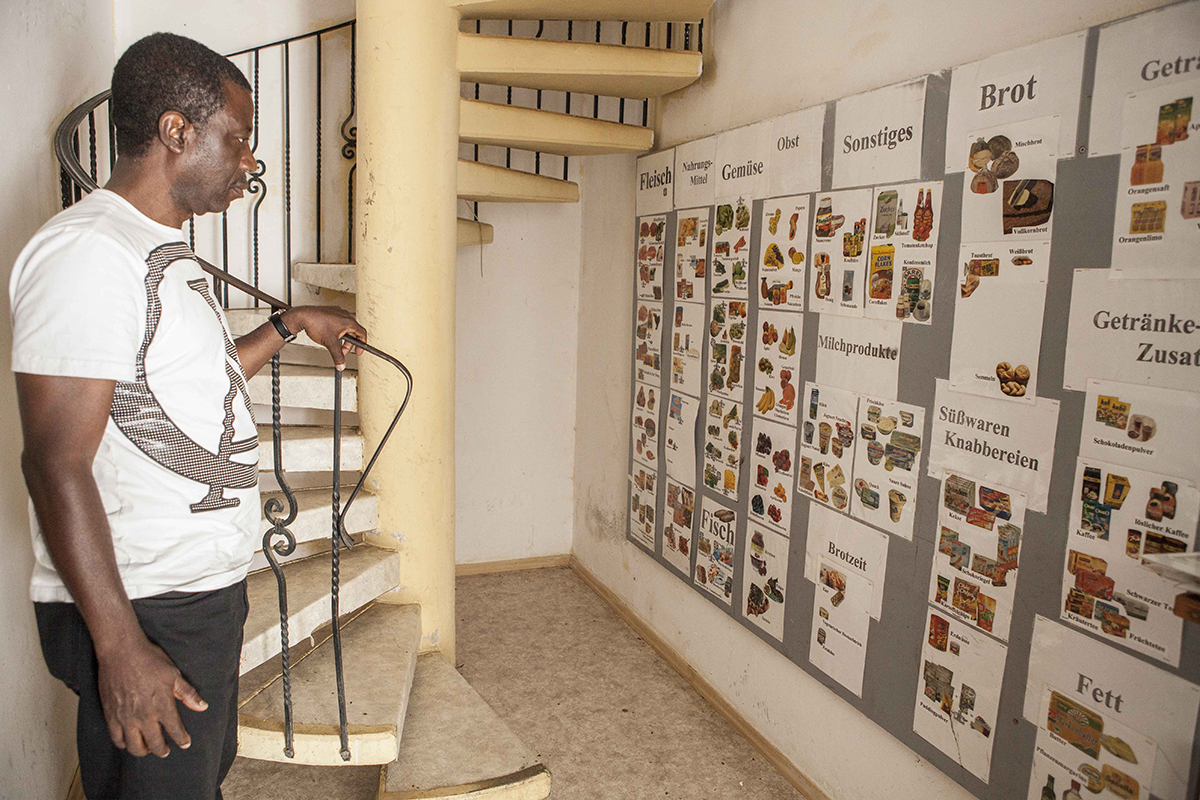
At Böbrach, refugees don’t receive money to buy their food, they receive food packages. They choose from a (limited) list of products stuck on the wall. The closest supermarket is almost five kilometres away. When the last bus goes by, or when they haven’t got enough money to pay the fare, the refugees go walking. They’ve got to make the same journey to get to an internet café where they can decipher the letters they’ve been sent by the civil service with the help of translation programmes (Image: © Alexis Huguet)
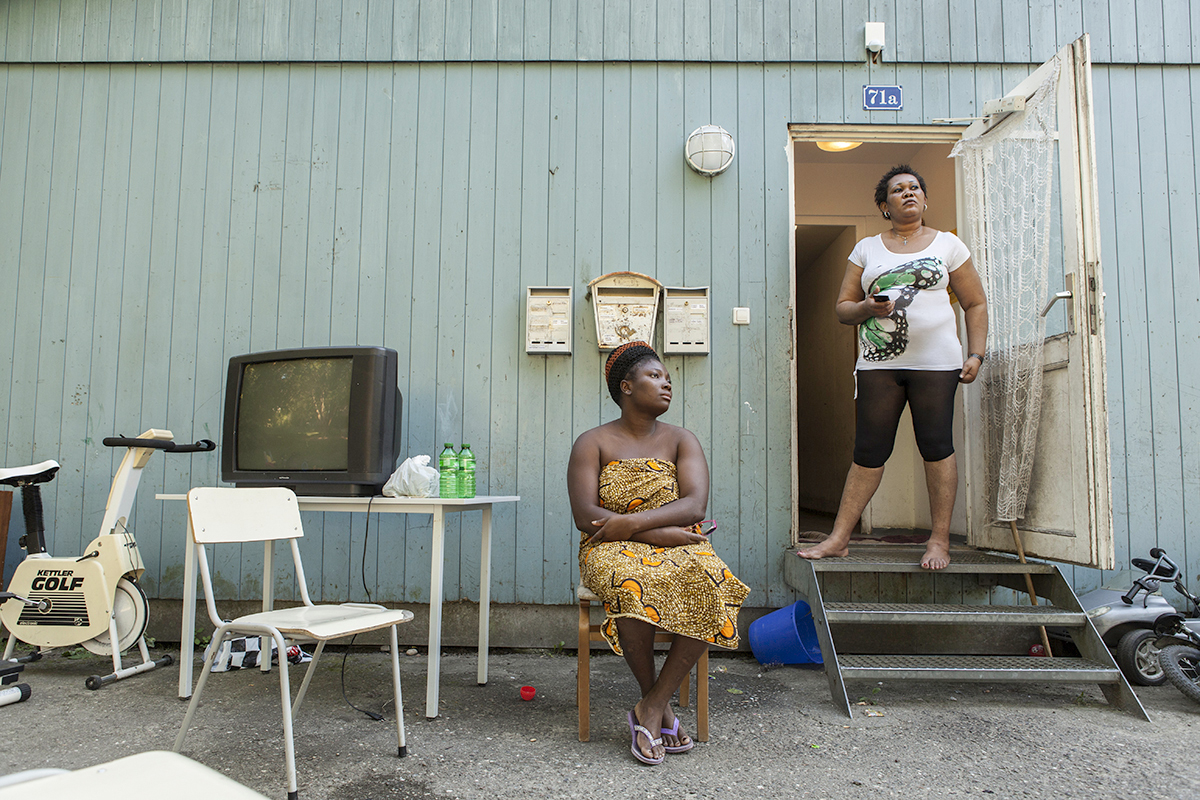
Restrictions are such that jobs are few and far between. Jackie (pictured) landed herself a 'community job' which involved working for several months in a local hospital as a cleaner for 'one euro an hour'. Asylum seekers can also find themselves 'normal' jobs, but once they’ve landed the job, the local job centre tries to replace them with an unemployed German national, an EU citizen or a non-EU resident holding a residence permit. It’s if they don’t find anyone else for the job that it is finally offered to the refugee (Image: © Alexis Huguet)
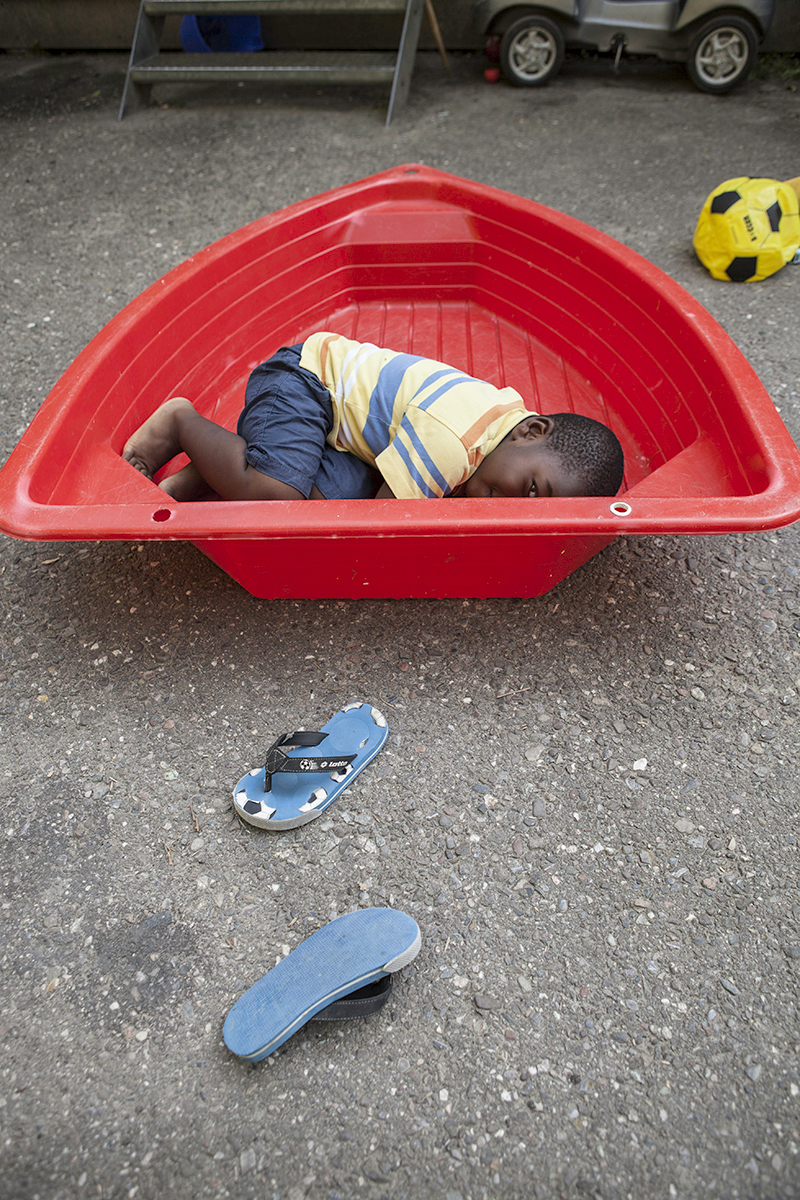
Leonard was born in Germany. Magdalena, his Nigerian mother, still doesn’t know whether she’s thought of as a refugee. After three years, she was tired of waiting for the administration to respond to her asylum application. 'It drives you mad,' she says. 'You’re constantly thinking about it.' According to official figures, the majority of asylum requests are dealt with in less than a year. Some asylum seekers however can be waiting over ten years before they get a definitive answer (Image: © Alexis Huguet)
Translated from Isolement, le prix de l’asile allemand



